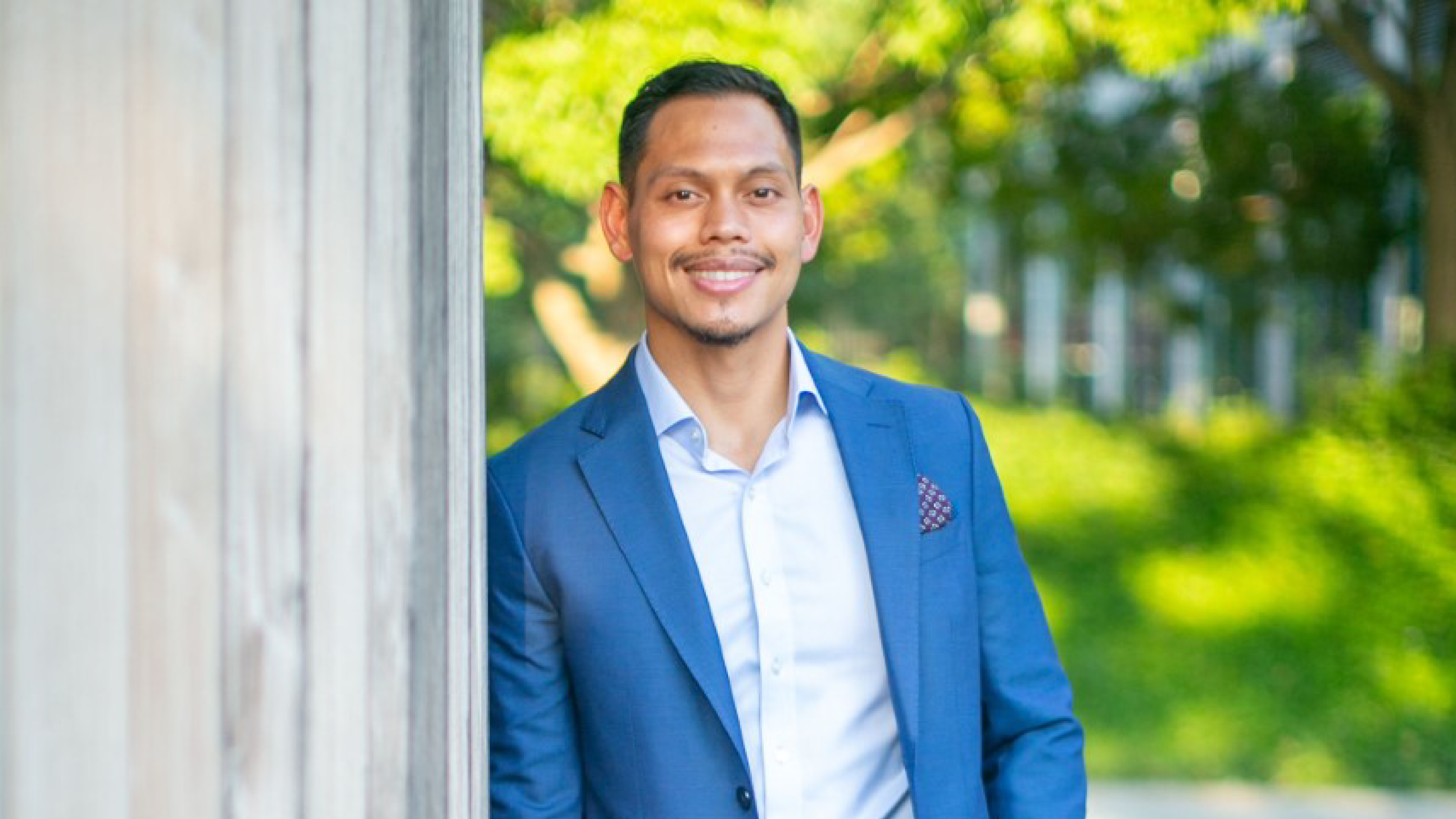
By Neil Cote
Photo Credit: Astami Bekti
It’s bound to lift, or at least mitigate, this pandemic that’s so disrupted the world as we know it.
But even if the risks of COVID-19 are deemed manageable enough for employees to return to work, Ronnie Mewengkang’s very proactive sanitation measures won’t rest. In just a few months, he’s come too far as facilities director of Solomon Page, a staffing and executive search firm, to relax his standards.
Besides, nobody can predict what might follow this virus.
“If anything, this pandemic has taught us that cleanliness should be a priority for every office—commercial, residential, institutional, religious,” the gregarious Mewengkang tells Blueprint in August while tending to his duties at the Solomon Page headquarters in New York City. “Even after this, I’ll continue as I’ve been doing.”
After all, what employee wouldn’t feel more at ease—and productive—in an immaculate office? What prospective client or guest wouldn’t get a better impression if the place sparkled? For the firm, noted for matching professional talent where most needed, appearances do matter.
Intent on keeping Solomon Page headquarters and 16 satellites sparkling, Mewengkang is among the few employees who haven’t been working remotely. There’s no substitute for someone in his role being on premises and interacting with the many stakeholders.
It’s part of his MBWA—Management by Walking Around—modus operandi.
He walks the walk
“If you’re not walking around and talking to the people there, you’re not noticing things,” he continues. “My goal is to visit each office and meet with team members and community managers, engineers, landlords, property managers—everyone running our offices—so I understand their needs and align them with my standards of building cleanliness and the highest level of design and construction. But you’ve got to be there to see just what it is that needs to be cared for.”
Not to mention what can’t be seen.
Following guidelines set by the federal Centers for Disease Control and Prevention, Mewengkang is well on his way to upgrading all office filtration systems with MERV-13 air filters—the gold standard for ensuring air quality.
That’s MERV as in Minimum Efficiency Reporting Value, a metric devised by the American Society of Heating, Refrigerating and Air-Conditioning Engineers. A No.13 filter traps 90 percent of the tiniest airborne particulates that may also be the unhealthiest. These might be the bacteria, molds, mildew, viruses and fungi that are the same size as a strand of hair sliced in half three times.
Of course, air still has to flow through the filters. Using the CDC as a guide, Mewengkang consults with a building’s engineer to ensure complete circulation every 10 minutes, or six times an hour. If ever there was a time to opt for extreme caution, it’s now, he emphasizes.
Working for a work force
“I’m focused on getting the employees back to their desks, but don’t want anyone coming in unless they feel comfortable,” he says after returning from Solomon Page’s satellites in New Jersey and Long Island, with a visit to the Connecticut office just around the corner. With the vast number of office locations nationwide, as well as one in London, he may not visit them all anytime soon, but in the meantime expects the cleaning contractors to uphold his evolving specifications.
Some specs might vary depending on the locale and how many employees have been showing up, but all call for a thorough disinfecting and sanitizing every night. That includes the monitors and keyboards, the telephones and arm rests, and hard-to-reach places.
High-touch, high-traffic areas—such as doorknobs and elevator buttons—might be outfitted with Silver Defender’s stretchable antimicrobial film. The only product of its kind to have initiated EPA pesticide registration, Silver Defender is both affordable and easy to install.
Trash is emptied each night, floors vacuumed and windows and partitions wiped clean. Disinfectant wipes, hand sanitizers, gloves and masks are made available to employees, and signs are posted as reminders of social distancing and pathways for access and egress.
Facilities finds him
A first-generation son of Indonesian immigrants, the 36-year-old Mewengkang—like so many in his profession—came into facilities management largely through happenstance. He delayed his higher education for a few years while working as an office services administrator for Helen Keller International, followed by a stint as an office and facilities manager at The Halo Group.
Then came Marymount Manhattan College, where he earned a bachelor’s in international economics in 2013. Concurrently, he held various facilities positions at The Vilcek Foundation, a nonprofit that raises awareness of immigrant contributions to the United States.
He would log over a decade with Vilcek, ascending to chief of facilities and security, while earning a master’s in construction management from Columbia University and then a certification in facilities management from Pace University.
Those diverse experiences prepared him for the business world. So when Solomon Page needed someone to oversee facilities across its expanding portfolio, those credentials—and plenty of intangibles—made the position a good fit.
“I really wanted a company with a work-life balance, a great culture and leadership team that would support me and encourage innovation,” he says. “A lot of my philosophy and attitude toward work is aligned with their core values.”
Though it’s not all a 9 a.m. to 6 p.m. routine. That’s rarely the case for any new hire in a sensitive role, especially with COVID-19 adding to the pressure of maintaining a healthy and welcoming environment.
But as much as possible, it’s been business as usual at Solomon Page, whose services include short-term and long-term temporary staffing, full-time placements, as well as executive search. In a behind-the-scenes role, Mewengkang is well-positioned to make a difference.
“In facilities, there is always so much happening,” he says. “And I’m passionate about helping people.”
For the original article, visit: Blueprint.



